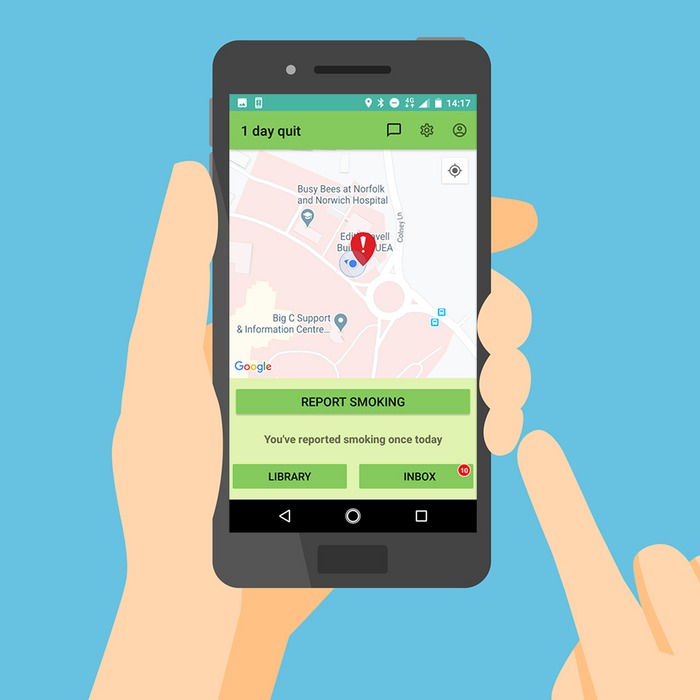Published on
Updated
Reading 2 mins.
British researchers have developed a smartphone application to quit smoking. Based on artificial intelligence, this app is able to detect when and where a smoker would like to light a cigarette. According to the researchers’ first tests, this method would be more effective than online smoking cessation services.
A new study by the University of East Anglia, in collaboration with several other UK universities, shows that an AI-powered smartphone app could become a smoking cessation aid. Called Quit Sense, the application detects the triggers of smoking, and helps smokers manage their cravings in real time by sending them messages of support.
“We know that attempts to quit often fail because the urge to smoke is triggered by spending time in places where people used to smoke. This could be a pub or a workplace, for example. Other than using medication, there is no way to help smokers deal with these types of situations and cravings when they arise.“, explains Felix Naughton, professor and principal investigator of this study published in the journal Nicotine and Tobacco Research.
To verify the effectiveness of Quit Sense, the researchers conducted a trial with 209 smokers recruited via social networks. All participants received a link to the online smoking cessation service of the National Health Service (NHS), the British public health system. Only half of the volunteers received a link to the Quit Sense app. After six months, participants were asked to follow up online by filling out a form. Those who said they had quit smoking were required to provide a saliva sample to verify their statement.

“We found that when smokers were offered the Quit Sense app, three-quarters of them installed it, and those who started a quit attempt with the app used it for about a month on average. We also found that four times as many people who were offered the app quit smoking six months later, compared to those who only received online NHS help“, explains Felix Naughton.
The research team nevertheless notes the limitations of this study, insofar as it was carried out on a small scale and that less than half of the people who declared that they had quit smoking provided a sample of their saliva as agreed. . Further research is therefore needed to estimate the effectiveness of the application.

